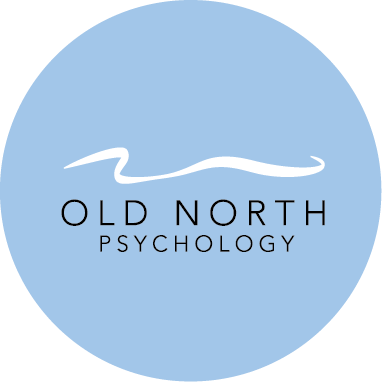THERAPY FOR INDIVIDUALS
Individuals seek therapy for all sorts of reasons. Some clients are functioning quite well and are looking to enhance or improve some aspect of their life, while others might be suffering a great deal and struggling to cope with life’s demands. We are equipped to help at all points along this continuum, and provide therapy for a very wide range of presenting issues.
Depression
Anxiety
Stress
Low Self-Esteem
Recovery from Childhood Abuse
Chronic Pain
Relationship Issues
Grief and Bereavement
Personal growth
Common Presenting Issues in Individual Therapy
-
While all of us feel down sometimes, there is a point at which low mood begins to get in the way of living a fulfilling life. This may take the form of persistently low mood or an inability to experience joy. It may be a more intermittent, severe depression that occurs once in a while and which results in a withdrawal from life and one’s relationships. It may be a bipolar depression that features periods of very high energy, impulsivity, and sometimes irritability.
Treatment for depression almost always involves some aspect of Cognitive-Behavioural Therapy (CBT), which will help you to change your thoughts and behaviours in order to improve your mood, but it might also involve integrating Insight-Oriented Therapy to look at aspects of your childhood and early relationships that might be relevant.
-
Generalized Anxiety
People with generalized anxiety experience persistent worry across multiple areas (money, work, relationships, health). They’ll often report that they’ve always been “a worrier”, or have always felt tense, and will sometimes refer to it as being part of their personality. Often as one specific worry recedes, another comes to the forefront, making it seem that the anxiety is a moving target that can never be resolved.
Social Anxiety
Social Anxiety Disorder is persistent anxiety about social situations and fear of being negatively evaluated by others. This anxiety can be related to performing in any way in public, from socializing, to presenting at work, to eating in public, to raising one’s hand in a classroom setting. There is often a “snowball effect” where anxiety about the anxiety develops, and this is precisely what therapy helps to interrupt.
Obsessive-Compulsive Disorder (OCD)
OCD involves unwanted and disturbing thoughts, images, or urges (obsessions) that intrude into one’s mind and cause a great deal of anxiety, which one then tries to reduce by engaging in repetitive behaviours or mental acts (compulsions). People suffering with OCD are well aware that their compulsions are problematic, but they struggle to overcome them. The usual treatment for OCD is a specific type of Cognitive Behavioural Therapy (CBT).
Panic
For people whose anxiety manifests as panic, the world can become a very frightening place. Panic attacks involve bouts of anxiety so severe and physical that a person might think that they are having a heart attack. Often a person who experiences panic attacks will begin to anticipate future panic attacks, and this can set a cycle in motion. If left untreated, panic can lead to agoraphobia, a condition in which a person avoids leaving their home or safe place in order to avoid experiencing panic symptoms.
Posttraumatic Stress Disorder (PTSD)
Sometimes in the aftermath of a traumatic experience, people develop intrusive memories or images of the trauma, and are chronically on high alert. In this way, a person with PTSD essentially ends up reliving the traumatic event over and over. People with PTSD can experience emotional numbness, hypervigilance, difficulty sleeping, irritability, and persistent negative thoughts about the world and their future. They cope by avoiding anything that reminds them of the event, and as a result their life can become quite limited. Therapy for PTSD is often delivered using Cognitive Processing Therapy (CPT).
-
While stress is a normal part of life, there can be times when our usual methods of coping are stretched to their limit. It might result from a string of stressors that come so close together that we don’t have sufficient time to recover from one and prepare for the next. Or maybe it’s just too many uncontrollable things in our environment that leads us to realize that we are burned out. Therapy for stress and burn-out typically combines instruction in stress-management and Relaxation Training, and might incorporate aspects of Insight-Oriented Therapy aimed at addressing other factors (e.g., assertiveness, boundary-setting, perfectionism, self-esteem issues) that might be contributing to one’s distress.
-
One of the most common themes underlying depression, anxiety, and relationship issues is low self-esteem. Many of us, sometimes despite outward indications of success and competence, struggle to feel self-love, self-compassion, and a sense of intrinsic worthiness. In the context of a positive therapeutic relationship one can explore the roots of low self-esteem and learn to see themselves more clearly, opening up possibilities for self-love and self-compassion. This work might involve a variety of approaches or an integrative approach, depending upon the individual.
-
The effects of childhood abuse can be long-lasting. The child copes the best they can in the midst of the abuse, grows up and establishes their own safety, overcoming the abuse in many ways. Often, however, despite their strength and resilience, they continue to carry the effects of the abuse later in life in the form of anger, shame, anxiety, and possibly difficulty trusting and relating to others. Insight-Oriented Therapy and Cognitive Behavioural Therapy are useful approaches for addressing childhood abuse.
-
Chronic pain has a significant psychological component. When a person is in frequent or constant pain, it affects their thoughts, behaviour, and emotions. There is a feedback loop that develops: the worse a person’s pain is, the more negative, sedentary, tense, and sad they get, but the same applies in the other direction. This opens up a very powerful potential path of change through chronic pain-focused psychotherapy. Chronic pain therapy changes thoughts, behaviour and mood in order to alleviate physical pain and enhance quality of life. This therapy typically involves a combination of CBT, Relaxation Training, and Mindfulness-Based Psychotherapy.
-
Therapy is a great way to learn about oneself and how one relates to others. Sometimes people seek therapy in an attempt to better understand a relationship that they’re in, and possibly improve it. They might also come to therapy hoping to gain insight into why they’re having a hard time leaving a relationship that they feel is not fulfilling. Often, people present in therapy hoping to better understand their own role in the patterns of conflict they see across their relationships. Therapy for Relationship Issues is often Insight-Oriented Therapy.
-
While grieving is a natural part of life, sometimes our reaction to a loss leaves us struggling to continue to live in a meaningful way. The loss might be the death of a loved one (human or pet), the loss of a job, the loss of a relationship (child moving away, loss of a friendship, break-up or divorce), the loss of one’s youth, or even the loss of a dream. Therapy can help a person work through their feelings about the loss, address limiting thoughts or beliefs that might be complicating their grief, and find a way forward toward a meaningful life again.
-
Therapy is not always about addressing symptoms. We also help clients break out of old patterns, gain insight into their personality and relationships (past and present), address limiting beliefs or fears, gain clarity regarding future ambitions, navigate difficult decisions, and learn to better understand and communicate their feelings. Typically, therapy aimed at Personal Growth relies heavily on Insight-Oriented Therapy and Motivational Interviewing.
Approaches to Therapy
In theory, each of the approaches to therapy we use is separate and distinct. In practice, we are always using an approach that is to some extent integrative. Your psychologist will take into account any stated preference you might have for a given approach and will use their expertise and their accumulated knowledge about you in order to craft an approach that will best meet your needs based on your personality, your symptoms, and your goals.


